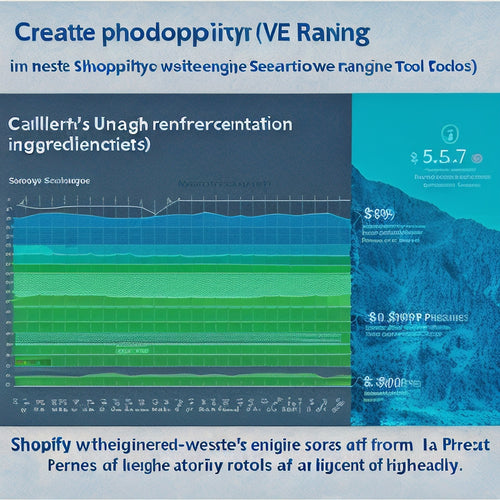
E-commerce Boom Sparks Surge in Chargeback Fraud
Share
The e-commerce boom, fueled by projected growth exceeding $370 billion in value by 2026, has unintentionally created an environment conducive to chargeback fraud. The dark side of e-commerce growth is marked by a 23% surge in fraudulent transactions, posing significant financial risks to online businesses. Financial losses from fraudulent transactions can be substantial, with potential losses ranging from 40% to 80% of sales revenue. To mitigate these risks, it is essential for e-commerce merchants to implement robust security measures and a chargeback management strategy. By understanding the underlying dynamics of chargeback fraud, merchants can develop effective prevention strategies to safeguard their revenue streams and maintain a competitive edge, and exploring further reveals the key to successful fraud mitigation.
Key Takeaways
• The e-commerce boom has led to a 23% surge in chargeback fraud, posing significant financial risks to online businesses.
• Financial losses from fraudulent transactions can range from 40% to 80% of sales revenue, threatening e-commerce merchants' revenue streams.
• Robust security measures, such as identity verification and chargeback management strategies, are crucial to mitigate risks and prevent revenue loss.
• Advanced analytics and machine learning can help identify and prevent fraudulent activities, ensuring a secure online environment for e-commerce businesses.
• Proactive measures, including automated protection and recovery strategies, are essential to combat chargeback fraud and maintain a competitive edge.
E-commerce Growth Statistics
The e-learning industry's projected value of over $370 billion by 2026 underscores the exponential growth of e-commerce, which is further substantiated by the fact that worldwide e-retail sales now represent 14.1% of all retail sales.
This surge in online transactions creates a fertile ground for fraud prevention measures to be implemented, ensuring revenue protection for e-commerce businesses.
The online grocery sales' 22% growth in the US in 2019 and the global revenue from online food delivery projected to hit $200 billion by 2025, further emphasize the need for robust fraud prevention strategies.
As the US equipment rental market grows at a 6.1% CAGR to reach $59.4 billion in 2021, e-commerce businesses must prioritize revenue protection to mitigate the risks associated with fraudulent activities.
The Dark Side of E-commerce
E-commerce's rapid expansion creates a profitable environment for fraudulent activities to thrive, with chargeback fraud emerging as a significant concern for online businesses.
The increase in digital transactions has given rise to fraudulent transactions, which can lead to substantial financial losses if left unchecked. Prevention strategies are vital to mitigate the risk of chargeback fraud, which can result in a significant financial impact on e-commerce businesses.
Implementing robust security measures, such as identity verification and transaction monitoring, can help detect and prevent fraudulent activities. Additionally, having a thorough chargeback management strategy in place can help minimize the financial impact of chargeback fraud, ensuring that online businesses can operate safely and securely in the digital landscape.
Impact of Chargeback Fraud
In the wake of a 23% surge in chargeback fraud, online businesses face a challenging reality: the financial impact of fraudulent transactions can be devastating, with potential losses ranging from 40% to 80% of sales revenue.
The increase in disputes resulting from fraudulent transactions poses a significant threat to e-commerce merchants, leading to substantial revenue loss and damage to their reputation.
Additionally, the rise in chargeback fraud has led to an exponential growth in the number of disputes, further exacerbating the issue.
It is crucial for online businesses to acknowledge the severity of this problem and take proactive measures to mitigate the risks associated with fraudulent transactions and disputes. By doing so, they can minimize revenue loss and guarantee a safer online shopping experience for their customers.
Combating Chargeback Fraud Effectively
Effective chargeback fraud mitigation necessitates a multi-faceted approach that leverages professional assistance, automation, and data-driven insights to combat the growing menace of fraudulent transactions.
Preventing fraud requires a thorough strategy that integrates advanced analytics, machine learning, and human expertise to identify and flag suspicious transactions.
Recovery strategies must also be employed to reclaim lost revenue and minimize the financial impact of chargeback fraud.
By leveraging automation and data-driven insights, e-commerce businesses can develop a robust defense against fraudulent transactions and minimize the risk of revenue loss.
A proactive approach to combating chargeback fraud is essential in today's digital landscape, where fraudsters are becoming increasingly sophisticated.
Chargeflow Solution Overview
To successfully combat chargeback fraud, e-commerce businesses require an all-encompassing solution that integrates advanced analytics, automation, and expert insights. This is where Chargeflow's innovative approach comes into play. By providing automated protection against fraudulent transactions, Chargeflow's solution enables e-commerce businesses to focus on revenue generation while minimizing the risk of chargeback fraud.
This integrated approach leverages advanced analytics to identify and prevent fraudulent transactions, ensuring that businesses can maintain a secure online environment for their customers. With Chargeflow's all-inclusive solution, e-commerce businesses can safeguard their revenue streams and maintain a competitive edge in the market.
Features and Benefits of Chargeflow
By leveraging a full range of features, Chargeflow provides e-commerce businesses with a robust toolkit to combat chargeback fraud and optimize their revenue streams. With automated solutions, merchants can focus on their core business while Chargeflow handles dispute management.
The platform's revenue recovery strategies enable businesses to recover lost revenue and minimize financial losses. Additionally, Chargeflow's features, such as ChargeResponse and ChargeScore, provide actionable analytics and insights into customer interactions, helping to identify and prevent fraudulent activities.
With a success-based pricing model, e-commerce businesses can rest assured that they only pay for results, ensuring a tangible return on investment. By utilizing Chargeflow, merchants can safeguard their revenue and maintain a competitive edge in the market.
Automation and Resources for Success
In today's fast-paced e-commerce environment, automating chargeback management processes is essential for businesses to efficiently recover lost revenue and minimize financial losses. Chargeflow's automation infrastructure provides a fully hands-off solution, enabling merchants to focus on revenue-generating activities while ensuring timely and effective fraud prevention and revenue recovery.
With features like instant setup, ROI guarantee, and autopilot chargeback recovery, businesses can rely on Chargeflow to streamline their dispute management processes. Additionally, Chargeflow offers valuable resources, including a free e-book and access to industry insights, to help merchants stay informed and proactive in managing chargeback fraud.
Frequently Asked Questions
What Percentage of Retail Sales Are Attributed to E-Retail Sales Worldwide?
Worldwide, e-retail sales account for 14.1% of all retail sales, greatly contributing to global e-commerce growth, which, in turn, is reshaping the retail landscape and challenging traditional retail business models.
How Does Outsourcing Chargeback Management Affect Business Resources?
With 65% of respondents agreeing that outsourcing is the most cost-effective option, delegating chargeback management externally optimizes resource allocation, freeing up in-house departments to focus on revenue-generating activities, and minimizing the drain on business resources.
What Is the Average ROI for E-Commerce Businesses Using Chargeflow?
E-commerce businesses leveraging Chargeflow's automation infrastructure can expect a significant ROI increase, with a guaranteed return on investment through effective chargeback prevention, resulting in enhanced revenue retention and accelerated e-commerce growth.
Can Chargeflow Help With Chargeback Fraud on Paypal Transactions?
Chargeflow's automation infrastructure enhances identity protocols for PayPal transactions, providing robust fraud detection and chargeback prevention capabilities, ensuring secure and reliable transactions while protecting e-commerce businesses from fraudulent activities.
Is It Possible to Automate Full Dispute Management With Chargeflow?
Upon examining the efficacy of automation in dispute management, we find that Chargeflow's full dispute automation indeed streamlines the process, enhancing dispute resolution efficiency by leveraging its robust infrastructure and ChargeResponse features.
Related Posts
-
Enhance Shopping Experience With Shareclips: The Ultimate Shoppable Video Solution
ShareClips is a revolutionary platform that revolutionizes the shopping experience by offering a convenient and innov...
-

Does Shopify Offer SEO Optimization
This article examines the question of whether Shopify offers SEO optimization. It aims to provide an objective and i...
-

Streamlining Your Shopify Store for Long-Term Reliability With Automation
The implementation of automation in Shopify stores has emerged as a significant strategy for businesses seeking to o...

